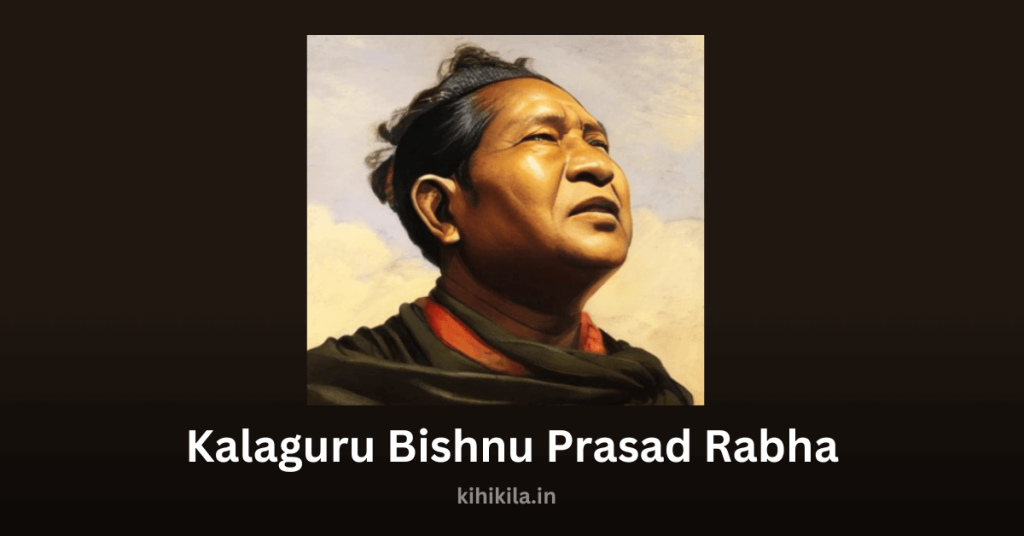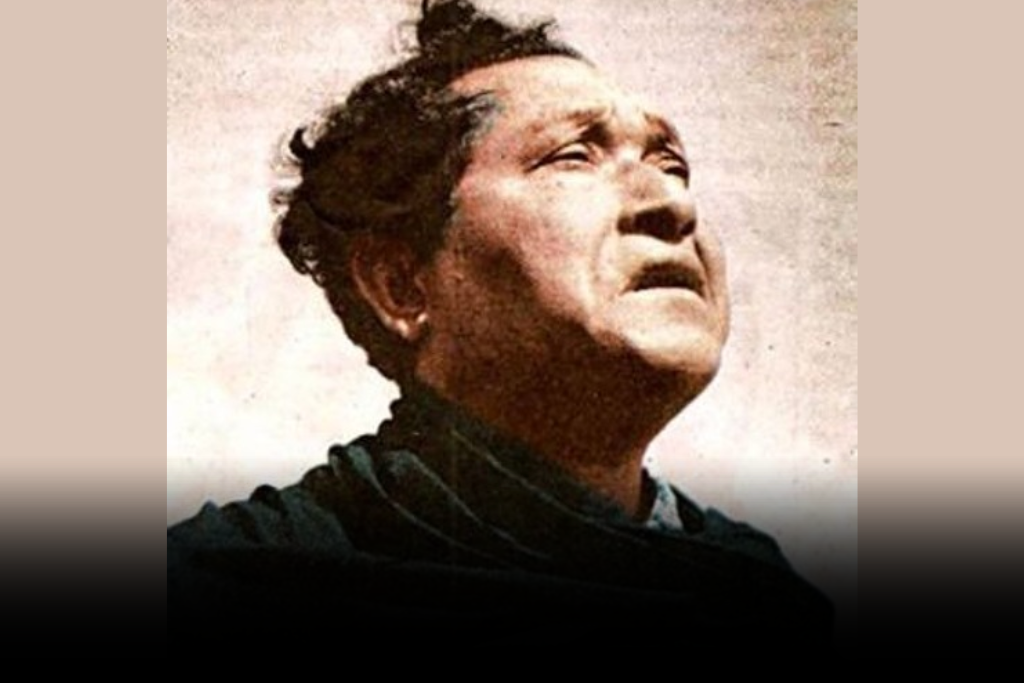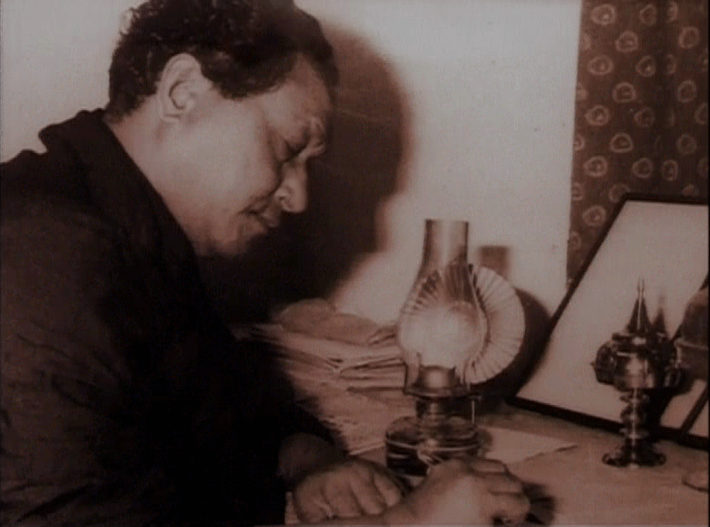Bishnu Prashad Rabha – The Kalaguru of Assam
Bishnu Prashad Rabha was one of the most celebrated cultural icons of Assam, whose contributions went far beyond the boundaries of art. Known widely as the Kalaguru, he was a multifaceted personality — a freedom fighter, revolutionary, poet, musician, actor, painter, and dramatist. His life and works remain an inspiration for generations, making him one of the most revered figures in Assamese history.
Early Life and Struggles
Born on January 31, 1909, in Dhaka, Bishnu Prasad Rabha emerged as a revolutionary figure whose influence deeply shaped Assamese culture. Gifted with remarkable talents across multiple art forms from a young age, he combined his creativity with a steadfast dedication to social change. His activism extended beyond the fight for India’s independence; he was a vocal opponent of systemic inequalities such as capitalism, poverty, and exploitation. Rabha’s vision transcended mere political freedom, aspiring instead for a complete social revolution. His famous declaration, “I am fighting for a revolution from the realm of necessity to the realm of freedom,” encapsulates his commitment to transforming society on a fundamental level.
A Revolutionary with a Cause
Bishnu Prasad Rabha’s political outlook was profoundly shaped by left-wing ideologies, which inspired his lifelong commitment to social justice and equality. He developed close ties with the Communist Party of India and later became an active member of the Revolutionary Communist Party of India (RCPI). Within this framework, Rabha took part in several armed and grassroots movements aimed at challenging British colonial rule and dismantling oppressive structures. His activism was distinguished by a selfless dedication to the welfare and empowerment of the marginalized, standing in stark contrast to many contemporaries whose pursuits were driven by personal ambition or political power. For Rabha, the ultimate goal was not merely the overthrow of colonialism but the establishment of a society rooted in equity, where the common people could live with dignity and freedom.

One of the most extraordinary demonstrations of Bishnu Prasad Rabha’s unwavering commitment to social justice was his generous decision to donate his vast ancestral estate, spanning approximately 2,500 bighas of land, directly to the peasants who toiled on it. This act was rooted deeply in his conviction of the principle “Haal Jaar Maati Taar,” which translates to “Those who cultivate the land should own it.” By relinquishing his own property for the welfare of the farming community, Rabha challenged the traditional landholding structures and sought to empower the marginalized rural population. His selfless contribution continues to have a lasting impact, as the land he gifted eventually became the site for Tezpur University, an institution that now symbolizes education, progress, and opportunity for countless students. This enduring legacy stands as a powerful reminder of Rabha’s dedication to upliftment and equity.
Despite his immense sacrifices and unwavering dedication to social causes, Bishnu Prasad Rabha endured profound personal hardships throughout his life. One of the most heartrending episodes was the untimely death of his beloved wife, Kanaklata, who passed away due to the absence of proper medical care—an unfortunate consequence of Rabha’s financial struggles. Lacking the necessary funds to afford treatment, he was helpless to save her, a loss that deeply affected him. Yet, even amidst such personal grief and adversity, Rabha’s resolve never wavered. He remained steadfastly committed to his ideals of justice, equality, and empowerment, refusing to allow sorrow or hardship to deter him from his lifelong mission. His resilience in the face of tragedy underscores the strength of his character and the depth of his dedication to the people and causes he championed.
Contributions to Assamese Theatre and Cinema
Bishnu Prasad Rabha played a pivotal role in the evolution of Assamese theatre, leaving an indelible mark on the region’s performing arts landscape. His close association with the Ban Theatre in Tezpur was instrumental in shaping modern Assamese drama, blending traditional forms with contemporary themes that addressed social issues and cultural identity. Rabha was not only a gifted playwright but also an extraordinary actor and visionary film director, whose creative genius elevated the standards of stage and screen alike.
His influence extended significantly into Assamese cinema, where he contributed as an actor, director, and music composer. He starred in several important films, including Era Bator Sur and Siraj, showcasing his versatility and depth. His musical compositions added a rich cultural dimension to these works, resonating with audiences deeply rooted in Assamese heritage. One of his most acclaimed roles was that of Syem in Pratidhwani, which remains a defining performance in Assamese film history.
Despite receiving offers to work in the more commercial hubs of Kolkata and Bombay, Rabha consciously chose not to pursue mainstream stardom or commercial success. Instead, he dedicated his talents to educating and mobilizing the masses, using art as a tool for social awakening and cultural preservation. His commitment to socially conscious art continues to inspire generations of artists and activists in Assam and beyond.
A Master of Dance and Music
Bishnu Rabha’s artistic brilliance extended far beyond acting, encompassing extraordinary talents as a dancer and musician. His performances of the Tandava dance, known for their vigorous energy and spiritual depth, captivated audiences and critics alike. Among his admirers was the legendary Indian dancer Uday Shankar, who recognized Rabha’s exceptional skill and artistry. The honorific title Kalaguru was formally conferred upon him by Dr. Sarvepalli Radhakrishnan, the then Vice President of India, during a memorable event in Varanasi where Rabha’s breathtaking Tandava recital left a profound impact.
In the realm of music, Bishnu Rabha’s contributions gave rise to a distinct genre now celebrated as Bishnu Rabha Sangeet. His compositions, including timeless classics such as “Xurore Deulore” and “Bilote Halise,” have become integral to Assam’s cultural fabric. These songs, rich in lyrical beauty and emotional depth, continue to resonate with Assamese people across generations. To this day, no cultural program or festival in Assam feels complete without the soulful strains of Rabha’s music, testifying to his enduring legacy in the state’s artistic heritage.
The First Anthropologist of Assam
Bishnu Rabha was not only an artist and revolutionary but also a profound academician and intellectual thinker. Widely regarded as Assam’s first anthropologist, he made pioneering contributions to the study of the region’s diverse ethnic communities. His landmark work Bano-Kobang remains an invaluable ethnographic study, offering deep insights into the customs, traditions, and social structures of Assam’s tribal and indigenous groups, compiled through meticulous field research and personal interaction.

Despite the depth and originality of his scholarship, much of his academic work failed to gain recognition during his lifetime, overshadowed by his political activism and artistic pursuits. Many of his writings were published only after his death, leaving future generations to fully appreciate his vision and scholarly dedication. Today, his anthropological contributions are seen as a vital resource for understanding Assam’s cultural diversity and preserving its rich heritage.
Other notable works by Bishnu Rabha include Mising Coneng, Sonpahi, Axomiya Kristir Samuh Abhash, and Atit Asom. These writings offer deep insights into Assamese culture and society.
A True People’s Leader
Bishnu Rabha was far more than a revolutionary and artist—he was a true mass mobilizer whose voice echoed in the hearts of ordinary people. His speeches, delivered in a language that was both simple and stirring, connected deeply with farmers, workers, and villagers alike. He was a man of the soil, living among the very people he sought to empower, walking tirelessly from one village to another, listening to their struggles and urging them to rise against injustice.
Through his eloquence and personal charm, he transformed gatherings into movements, planting seeds of hope and resistance in even the most remote corners of Assam. His influence in rallying the masses was matched by only a few other stalwarts of the era, such as Sankar Barua and Jyoti Prasad Agarwala. For the rural poor, Bishnu Rabha was not just a leader—he was a voice for their dreams, a beacon of courage, and a symbol of the dignity of the common man.
His political career also included a brief stint in parliamentary politics. In 1969, he was elected as an MLA from Tezpur, further proving his popularity among the people. However, his political involvement was never about personal power—it was always about empowering the common people.
Honoring His Legacy
Bishnu Prasad Rabha passed away on June 20, 1969, marking the end of an era in Assam’s cultural, political, and revolutionary history. His untimely death left a void that remains deeply felt to this day, as he had been a rare figure who seamlessly blended art, activism, and social reform. In recognition of his immense contributions to Assamese culture, literature, music, theatre, and the fight for social justice, the Government of Assam observes Bishnu Rabha Divas every year on June 20. This day serves not only as a tribute to the Kalaguru but also as a reminder of his vision for an egalitarian and culturally rich Assam. Across the state, cultural programs, musical performances, and discussions are held to keep his ideals alive for future generations.
Several initiatives have been taken to preserve his memory:
- Kalaguru Bishnu Rabha Bota: A prestigious award given by the Assam government for outstanding contributions to culture and music.
- Bishnu Rabha Smriti Udyan: A memorial park built on the banks of the Brahmaputra in Tezpur, near the Bhairabi temple. His son, Hemraj Rabha, played a crucial role in its development.
The Lasting Impact of Bishnu Rabha
Even decades after his passing, Bishnu Prasad Rabha continues to inspire countless generations. His revolutionary zeal, unmatched artistic brilliance, and unwavering dedication to social justice have cemented his place as one of the most remarkable figures in Indian history. From the stirring melodies of Rabha Sangeet to his thought-provoking plays and progressive political ideals, every aspect of his work reflects his deep love for the people and culture of Assam. His legacy is not just remembered—it is lived, as his vision for a just, culturally vibrant, and united society remains an enduring source of guidance and pride for Assam and beyond.
His life teaches us that art is not just about entertainment—it is a powerful tool for change. Bishnu Rabha lived and breathed this philosophy, dedicating his entire existence to uplifting society. His story is a reminder that true greatness lies in selfless service and an unwavering commitment to justice.
FAQ’s:
Q 1. Who was Bishnu Prasad Rabha and why is he called Kalaguru?
Bishnu Prasad Rabha was an Assamese cultural icon—an artist, revolutionary, and social reformer. The title Kalaguru (Master of the Arts) was conferred on him by Dr. Sarvepalli Radhakrishnan in recognition of his artistic excellence.
Q 2. What is the significance of Bishnu Rabha in Assamese culture?
Bishnu Prasad Rabha played a vital role in shaping Assamese literature, music, theatre, and cinema, while also contributing to the state’s political awakening and cultural identity.
Q 3. What is Bishnu Rabha Sangeet?
Bishnu Rabha Sangeet refers to the collection of songs composed by Bishnu Prasad Rabha. His music was deeply connected to the struggles of the common people and reflected themes of patriotism, social justice, and cultural pride.
Q 4. What role did Bishnu Prasad Rabha play in India’s freedom movement?
He was actively involved in the struggle for India’s independence. Influenced by leftist ideologies, he fought not only against British rule but also for the rights of the poor and working class. He even donated his ancestral land to farmers as part of his commitment to social justice.
Q 5. What were Bishnu Prasad Rabha’s contributions to Assamese theatre and cinema?
He was deeply involved in Assamese theatre and films. He acted in and directed plays at the famous Ban Theatre in Tezpur. In cinema, he played key roles in movies like Era Bator Sur and composed music for Siraj. His influence in Assamese performing arts was remarkable.
Q 6. Which books were written by Bishnu Prasad Rabha?
He was a scholar and writer who authored several books on Assamese culture and history. Some of his well-known works include Bano-Kobang, Mising Coneng, Sonpahi, and Axomiya Kristir Samuh Abhash. His writings are considered valuable for understanding Assam’s cultural heritage.
Q 7. Why is Bishnu Rabha Divas celebrated?
Bishnu Rabha Divas is observed on June 20th every year to honor his contributions to Assamese culture, music, literature, and social reforms. People across Assam celebrate this day with cultural programs, musical performances, and discussions on his legacy.
Q 8. What was his connection with Tezpur University?
The land on which Tezpur University stands today was once owned by Bishnu Prasad Rabha. He donated this land to the people, following his belief that land should belong to those who cultivate it. His generosity is remembered as a symbol of his dedication to social equality.
Q 9. How did Bishnu Prasad Rabha influence Assamese dance and performing arts?
He was an expert in classical dance forms and was especially known for performing the Tandava dance. Even renowned dancer Uday Shankar was impressed by his skills. His artistic influence played a crucial role in shaping modern Assamese performing arts.
Q 10. What is the Bishnu Rabha Award?
The Bishnu Rabha Award is given by the Assam government to individuals who have made significant contributions to Assamese art, music, and literature. This award keeps his legacy alive by recognizing talented artists who continue his work in enriching Assamese culture.



